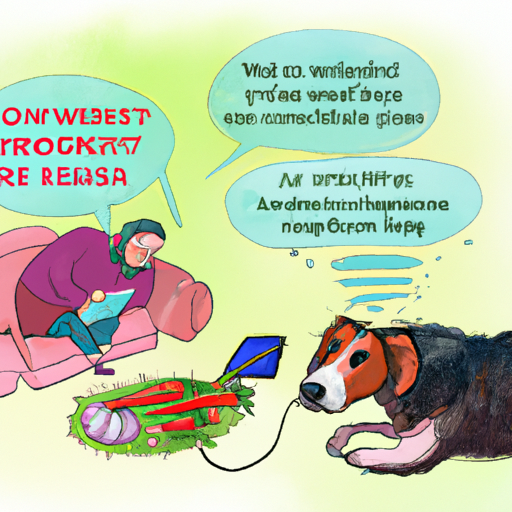Understanding Heartworm Disease
Heartworm disease is a serious and potentially fatal condition in dogs, caused by parasitic worms living in the heart and the blood vessels of the lungs. It’s a condition that requires your attention and compassion as a caregiver.
Here’s a table showing the lifecycle of a heartworm:
| Stage | Description |
|---|---|
| 1st Stage | Mosquito bites infected dog and picks up baby worms |
| 2nd Stage | Baby worms develop into infective stage within mosquito |
| 3rd Stage | Mosquito bites another dog, transferring infective worms |
| 4th Stage | Infective worms mature into adults in the dog’s heart and lungs |
While it’s always ideal to seek professional veterinary care, sometimes circumstances may not allow it. In such cases, there are some ways to help manage this condition at home.
Recognizing Heartworm Symptoms
Before you can begin treatment, you need to recognize the symptoms. Your dog may show signs such as:
- Difficulty breathing
- Fatigue after moderate activity
- A mild, persistent cough
- Decreased appetite
- Weight loss
Implementing Preventive Measures
Prevention is always better than cure. Given the severity of heartworm disease, it’s essential to take steps to prevent it.
- Use Heartworm Preventives: Many over-the-counter medications can prevent heartworm infection. These can be administered orally or topically.
- Keep Mosquitos Away: Since heartworm disease is transmitted through mosquito bites, reducing your dog’s exposure to mosquitos can help prevent infection.
- Regular Tests: If professional vet care is accessible, regular heartworm tests can help catch an infection early.
Natural Treatment Options
While there’s no proven “natural” cure for heartworm disease, some natural remedies may help support your dog’s overall health. Do remember, these are not replacements for professional veterinary care.
- Herbal Supplements: Certain herbs, such as garlic and turmeric, may boost your dog’s immune system.
- Healthy Diet: A balanced diet can improve your dog’s health and resilience against diseases.
- Regular Exercise: Regular, moderate exercise can support your dog’s cardiovascular health. But be careful not to overdo it, as strenuous exercise can worsen heartworm disease.
When to Seek Professional Help
If your dog’s condition worsens or doesn’t improve, it’s time to seek professional help. As a caregiver, your primary goal is to ensure your dog’s wellbeing. If you notice severe symptoms like fainting, blood in urine or extreme weight loss, don’t hesitate to reach out to a vet, even if it means overcoming financial or logistical barriers.
Frequently Asked Questions
Q: Can heartworm disease be completely cured without a vet?
A: No. While certain measures can manage symptoms and prevent infection, professional veterinary care is essential for complete treatment.
Q: Can I use human heartworm medication for my dog?
A: No. Human medication can be harmful to dogs. Always use medication specifically designed for dogs.
Q: Can my dog get heartworm disease from another dog?
A: No. Heartworm disease is transmitted through mosquito bites, not direct contact between dogs.
Q: What happens if heartworm disease is left untreated?
A: If left untreated, heartworm disease can lead to severe complications such as heart failure and damage to other organs.



